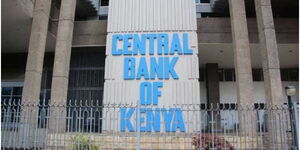The administration of US President Joe Biden has lifted the lid about how Kenyan government officials help money launderers escape.
In a report released on Tuesday, March 1, titled International Narcotics Control Strategy Report (INCSR), the US Department of State argued that the launderers are often tipped off by authorities before the raid is done.
The tip-off may, however, come unknowingly to the authorities since for them to obtain bank records, they must obtain court warrants which is not a confidential affair.
"To demand bank records or seize an account, police must obtain a court order by presenting evidence linking the deposits to a criminal violation. Confidentiality of this process is not well maintained, which leads to account holders being tipped off and relocating their assets.
"Kenya needs to strengthen implementation of good governance and anti-corruption measures and improve its Anti-Money Laundering/Combating the Financing of Terrorism (AML/CFT) regime. Bureaucratic, logistical, and capacity impediments hinder the investigation and prosecution of financial crimes.
The report, which was forwarded to the Congress, further indicated that the Kenyan authorities were not well-trained to tackle complex money laundering cases. This, according to the report, making hard to tame the vice that is deeply rooted in Kenya.
For instance, the country does not recognise virtual currency, which is gaining global traction, as legal tender hence no framework to govern the practice.
"The government of Kenya is not well-equipped or trained to combat increasingly complex cyber tools for money laundering, including virtual currency.
"Kenya does not recognize virtual currency as legal tender, so AML requirements have not addressed digital asset risks. CBK cautions banks and the public not to engage in digital asset trades, but authorities have not developed a framework to address digital asset threats. Tracking and investigating suspicious transactions within the mobile money sector remains challenging. Poor oversight and enforcement in this sector increase the risk of abuse," added the report.
The report also showed that Kenya had taken a step-back in the fight against money-laundering after President Uhuru Kenyatta, in 2021, lifted the threshold of reporting cash transactions above Ksh1 million.
At the time, Kenyatta argued that lifting the limit would allow easy financial transactions for micro, small and medium enterprises. The President argued that this would spur economic growth as the country recovered from the ravages of the pandemic.
Initially, the Central Bank of Kenya (CBK), which regulates the country's financial sector, required all banks and financial institutions to report all transactions above Ksh1 million. This was put in place to partly control circulation of dirty money some people usually rush to bank the cash.
"Kenya currently has no individual reporting requirement in place for large cash transactions, although banks must report large transactions to the Financial Reporting Center (FRC)," stated the statement.
The National Treasury is, however, seeking to introduce Common Reporting Standards Regulations, 2021 which is expected to seal money laundering loopholes ahead of the August 9 General Election.
In the new regulations, the banks will be expected to report suspicious activities on bank accounts that hold more than Ksh28 million.
The details of the holders of the accounts including the name, address, tax identification number, date and place of birth will be forwarded to Kenya Revenue Authority. Treasury hopes that this will deter money launderers and stump out illicit financial flows in the country.
“A reporting financial institution is also required, in the case of any financial accounts that a relationship manager knows or has reason to know, are directly or indirectly owned by the same person, to aggregate all such accounts,” read the regulations.












